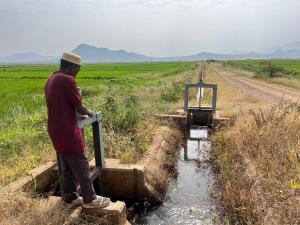Test project Pesticides and Protection Tanzania
testing out building a project
Joshua Moses
JoshuaI teach anthropology and environmental studies at Haveford College, just outside of Philly. Currently, I'm holed up in a cabin in the Adirondacks in upstate New York with several family members, including my spouse and 4 year old daughter and 3 dogs. I started working on disasters by accident, when one day in 2001 I was walking to class at NYU and saw the World Trade Center buildings on flames. I have known Kim for a few year and I contacted her to connect with folks around Covid-19 and its imacts.
I'm particularly intersted in issues of communal grief, mourning, and bereavement. Also, I'm interested in the religious response to Covid-19.
pece_annotation_1479078354
Sara_NesheiwatThis article mainly notes on the influences of culture on patients and their depiction of their medical history. The way a patient describes a narrative of their illness depends on their beliefs, set of morals, culture and customs in which they are used to and identify with. There is a correlation with the physicality of an illness and how it is perceived by their culture along with the way they depict it to professionals and pursue alleviating the issue. The importance of doctors recognizing this cultural influence and perhaps raising of stigmas is also reported since it can deeply impact the way a patient is taken care of and treated.
pece_annotation_1473573508
Sara_NesheiwatThis organization is aimed at healing those suffering when faced with emergency situations. The American Red Cross responds to areas of needs using volunteers and donors. Those affected by disaster receive care, shelter, aid, etc from American Red Cross. Ultimately, America Red Cross offers disaster relief and acts as an emergency response to destruction and disaster.
pece_annotation_1480141625
Sara_NesheiwatI further researched the history of sexual violence and its role in times of war, since its use as a weapon was mentioned. I also researched the background of sexual violence and stigmas that are associated with them in the countries mentioned in the article, in order to better understand underlying meanings and cultural struggles aside from the obvious atrocities of the violent act. Also since Medecins Sans Frontieres kept being cited, I did further research on them since much of the study was based off their findings, this lead me to further study Doctors Without Borders, which is what it is commonly known as in the US.
pece_annotation_1474151896
Sara_NesheiwatI found aspects involving the governments response to the situation very unconvincing. I would like to have seen more in the documentary about the government's attempts to inform and the actions they took. This may have been due to a lack of efforts taken by the government. Yet seeing more about the government's involvement as well as the hospital's and doctor's would have made that side of the situation far more compelling. The way it was portrayed in the documentary made it very unconvincing and I was not compelled by it.
pece_annotation_1480792661
Sara_NesheiwatThe bibliography of this article is quite extensive and thorough. This shows that a lot of research and effort was put into this article. The sources cited are all from very reputable labs, organizations, and researchers. This reflects the validity and expertise in this article.




the rice irrigation scheme, Pare Valley, Tanzania